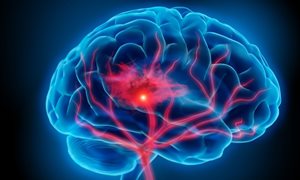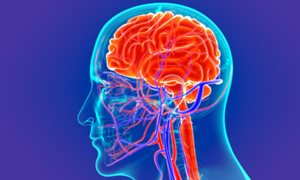12 July 2017
Previous research at Radboudumc and the Donders Institute showed that a single sleepless night led to a detectable increase of amyloid beta in the brain. The researchers suspected quickly that this might be caused by disturbances in deep sleep phases specifically. In order to test this hypothesis directly, researchers at Radboudumc, Donders, Washington University School of Medicine, and Stanford University conducted another sleep experiment with 17 healthy volunteers. The participants went to take a night's rest in a sleep laboratory, while their brain waves were being measured.
The researchers emphasize that a single or several bad nights do not imply an increased risk for Alzheimer's disease. Another night of good sleep will probably let the proteins return to their normal levels. The fact that poor sleep increases the levels of proteins that are associated with Alzheimer's, does not immediately reveal whether good sleep shields against Alzheimer's disease, explains Jurgen Claassen: "We cannot say for certain whether there is a causal relationship between sleep quality and Alzheimer's disease. But decent sleep has other proven health benefits and there are good and effective treatments, even non-pharmaceutical, for sleep disorders. Anticipating further research, I'll dare to recommend everyone to mind getting a good night's rest."

Jurgen Claassen
 Disturbed sleep causes an increase of amyloid beta in the brain, which is a protein that has been linked to Alzheimer's disease. After several sleepless nights, the amount of the protein tau rises as well, which is another protein associated with brain damage caused by Alzheimer's and other neurological conditions. A single night of poor sleep is sufficient to cause a detectable effect on the brain already.
Disturbed sleep causes an increase of amyloid beta in the brain, which is a protein that has been linked to Alzheimer's disease. After several sleepless nights, the amount of the protein tau rises as well, which is another protein associated with brain damage caused by Alzheimer's and other neurological conditions. A single night of poor sleep is sufficient to cause a detectable effect on the brain already.
Previous research at Radboudumc and the Donders Institute showed that a single sleepless night led to a detectable increase of amyloid beta in the brain. The researchers suspected quickly that this might be caused by disturbances in deep sleep phases specifically. In order to test this hypothesis directly, researchers at Radboudumc, Donders, Washington University School of Medicine, and Stanford University conducted another sleep experiment with 17 healthy volunteers. The participants went to take a night's rest in a sleep laboratory, while their brain waves were being measured.
A Single Bad Night Causes Rises in Amyloid Beta already
On the morning after the experiment, all participants gave some of their cerebrospinal fluid for testing. A single night of disturbed sleep caused the amount of amyloid beta to rise by a stunning ten percent. The amount of tau was not different after a single bad night, although it was increased in people who had also slept poorly during the preceding week. This confirms that tau deposits build up more slowly than deposits of amyloid beta.The researchers emphasize that a single or several bad nights do not imply an increased risk for Alzheimer's disease. Another night of good sleep will probably let the proteins return to their normal levels. The fact that poor sleep increases the levels of proteins that are associated with Alzheimer's, does not immediately reveal whether good sleep shields against Alzheimer's disease, explains Jurgen Claassen: "We cannot say for certain whether there is a causal relationship between sleep quality and Alzheimer's disease. But decent sleep has other proven health benefits and there are good and effective treatments, even non-pharmaceutical, for sleep disorders. Anticipating further research, I'll dare to recommend everyone to mind getting a good night's rest."
Jurgen Claassen
Related news items

Milk fat to attenuate obesity-related neurological co-morbidities
18 November 2021 The use of lipids to attenuate co-morbidities of obesity may sound paradoxical. However, it has shown to be particularly relevant in the fight against a less familiar co-morbidity of obesity, as it can induce alterations in white matter tracks, neuroinflammation and increases the risk of dementia. go to page
Early stage biomarker for Alzheimer's disease
4 November 2021 Researchers from the translational metabolic lab and department of neurology, in collaboration with researchers from University of Barcelona, set out to research a new biomarker in cerebrospinal fluid called “neuroleukin” for Alzheimer's disease. go to page
Palliative care for people with Parkinson’s Disease and their family Caregivers Current state of affairs
7 October 2021 Advanced stage Parkinson’s disease can cause a variety of symptoms, for which palliative care can be beneficial, though research from the point of view of patients in later stages is still rare. Radboudumc researchers therefore placed their patients perspectives at the center of their recent study. go to page
Radboudumc to lead research team into tackling future pandemics NWO funds complexity research on pandemics
5 August 2021 The Radboudumc is going to lead a study on how to deal with future pandemics, together with Radboud University and the University of Amsterdam. Rick Quax from the Informatics Institute/IAS is involved in this project. go to page

